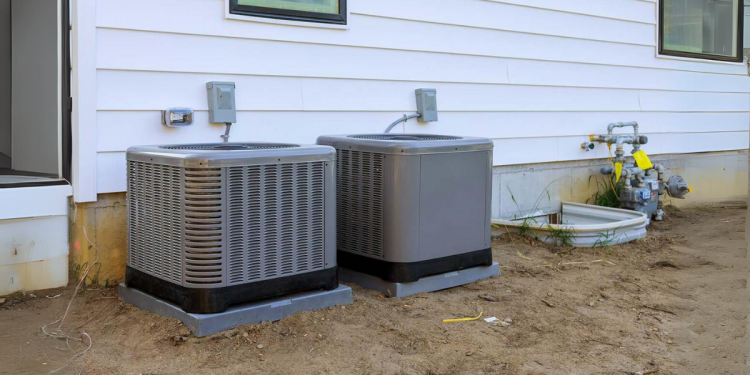In today’s fast-paced world, where climate control is essential for comfort and productivity, this guide delves into the intricate world of HVAC systems. From the basics of heating and cooling to the complexities of ventilation and energy efficiency, this resource equips readers with invaluable knowledge. With a focus on practical insights and sustainable practices, this guide empowers homeowners, professionals, and enthusiasts alike to make informed decisions about their indoor climate. Embark on a journey through the core principles, emerging technologies, and eco-friendly solutions that shape the modern HVAC landscape.
When it comes to central air conditioning, the choice between gas and electricity is pivotal. Both options have their advantages, with gas being efficient and cost-effective, while electricity offers ease of installation and environmental friendliness. Understanding these aspects empowers individuals to select the most suitable central air conditioning system tailored to their needs, ensuring optimal indoor comfort while considering energy efficiency and environmental impact.
1. The Fundamentals of HVAC: Exploring Heating, Ventilation, and Air Conditioning Principles
Understanding the fundamentals of HVAC is the cornerstone of creating a comfortable indoor environment. This section delves into the core principles, covering the basics of heat transfer, airflow dynamics, and refrigeration cycles. Readers will gain insights into the components that make up HVAC systems, from thermostats to ductwork, enabling a comprehensive understanding of how these elements work together to maintain ideal temperatures and air quality indoors.
2. Efficient Heating Solutions: From Furnaces to Heat Pumps
Efficient Heating Solutions provides an in-depth look into various heating methods, from traditional furnaces to modern heat pumps. Readers will explore the mechanics of these systems, understanding how they convert energy sources into warm air for indoor spaces. The section highlights energy-efficient practices, exploring advancements in technology that optimize heating processes, reduce energy consumption, and minimize environmental impact, ensuring homes remain cozy without compromising sustainability.
3. Optimizing Indoor Air Quality: Ventilation Strategies and Air Purification
Indoor air quality is paramount for health and comfort. This section focuses on ventilation strategies and air purification techniques that ensure the circulation of clean, fresh air indoors. Readers will learn about ventilation systems, filters, air purifiers, and humidity control methods. By understanding these strategies, individuals can create spaces free from pollutants, allergens, and contaminants, promoting respiratory health and enhancing overall well-being for occupants.
4. Cooling Technologies: Air Conditioners, Evaporative Coolers, and Beyond
Cooling Technologies explores the diverse range of cooling solutions, from traditional air conditioners to innovative evaporative coolers and beyond. This section provides insights into the mechanisms behind these technologies, comparing their efficiency, environmental impact, and suitability for different climates. Readers will gain knowledge on choosing the right cooling system for specific needs, considering factors like energy efficiency, maintenance requirements, and cost-effectiveness for optimal indoor comfort.
5. Smart HVAC Systems: Integrating Technology for Energy Efficiency
Smart HVAC Systems delves into the integration of cutting-edge technology, such as IoT devices and smart thermostats, to enhance energy efficiency and user control. This section explores the benefits of intelligent HVAC systems, from remote temperature management to predictive maintenance. Readers will discover how automation and data-driven insights optimize energy consumption, reduce utility bills, and contribute to a sustainable future. By embracing smart technologies, individuals can create environmentally conscious, energy-efficient, and comfortable living spaces. Considering the role of water in air conditioning units is equally vital. Water serves as a key component in many cooling systems, aiding in the heat exchange process. Whether through traditional evaporative coolers or advanced HVAC systems, understanding how water is utilized enhances the efficiency of air conditioning units. Proper water management ensures optimal performance, making a significant difference in both energy conservation and the overall effectiveness of cooling technologies.














